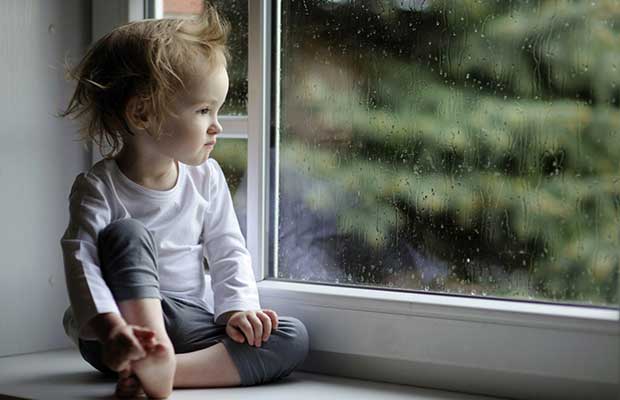
Imagine this is your home…
A darkened house in the suburbs of Columbus, around eight on a cold winter’s evening.
A little girl is snuggled under a blanket, next to her mother on a couch. A couple of candles throw shadows against the family room walls.
“Mommy, where’s Daddy?”, asks Kayla.
“Honey, like I told you before, Daddy went on his business trip to Chicago before the power went out a week ago. It’s not easy for him, but I’m sure he’s on his way home right now.” replies her mother, Melissa.
“Well I hope he hurries up – he told me he was taking me to McDonald’s when he gets back!”
Her mother laughs, but inside she worries about her husband John and their own situation. When the lights first went out, it seemed like an everyday outage. Maybe the ice storm had knocked down the power lines, or maybe the cold weather had overloaded the system. But now with the stores closed “for the duration”, and no news of help on the way, Melissa didn’t know how long the food in the pantry would hold out.
John had a hobby as a prepper, she knew, but she didn’t know exactly where anything was, or what the plans were, so she was hesitant to start rummaging around. But now she was getting desperate and scared for her and her little girl. What should she do?
Could this scenario happen to your loved ones?
While some ideal families may work together to prepare for emergencies, many of you may be in my situation. My kids and wife have their own activities and interests, so they look at me a bit oddly and are mostly uninterested when I bring up my prepping actions and purchases. I have ended up being the sole person in my family responsible for preparing. Despite their reactions, I want to make my family’s life easier, safer, and less stressful should I be sick, dead or otherwise not around when the SHTF.
Here’s what I’ve done:
- Labeled all supplies and equipment, and kept them organized.
- Prepared an Emergency Planning binder, with a separate section for each of my family’s needs.
- Reviewed the contents with my wife.
My binder
Section A: Short-Term Emergency
Eight days or shorter for our family. Foods need only be heated, lots of convenience foods and bottled water. Life would be kind of like camping. Each need is covered, same as in the Long-Term section, but some details differ.
Section B: Long-Term Emergency
Life would be very different and more difficult, so I made a separate tab for each need:
- Food –This section contains a menu based on the food I stored, a short cookbook with recipes adjusted for our situation and family size, and a food inventory spreadsheet with amount stored, portion size, calories, etc.
I also detail how to prepare for life after our family’s food stores run out. An example from our binder:
- If power goes out and LED flashlights don’t work with fresh batteries, immediately go to the corner store and buy as much food as you can carry with the emergency cash.
- Use our saved seeds to plant a large garden (as large as possible), with precedence given to foods that can be stored/preserved. Spring and fall growing seasons can provide a lot of food.
- Our stored wheat, barley and beans can be planted, eaten or sprouted.
- When protein supplies run low, hunting and snare use will be necessary. Use the shotgun, or the stored snares. Meat can be cooked fresh, salted and cured, jerked, or ground and dehydrated. See the meat preservation cookbook.
- Wild plants can be collected – dandelion leaves, young plantain leaves, spring cattail heads, as well as apples, persimmons, and pawpaws in the fall. See the wild edible plants handbook.
- Foraging in stores or houses is a last resort, because of the danger involved.
Even though I think I know how to tell if an EMP attack has occurred, my family doesn’t, so I gave explicit instructions as to what to do, since we only have 4 months of food stocked up so far. I also have guidebooks for them to use to plant, can, and other vital functions that I know how to do, but they don’t.
- Drinking Water – how to filter and treat rainwater with pool shock, how to assemble and operate a water filter.
- Hygiene & Sanitation –how and where to construct an outhouse, handle trash, wash clothes and dishes, and keep healthy.
- Defense – a list of weapons, ammunition, and how to use them. Since my wife doesn’t shoot, this will be a tough one to communicate in writing, a very good reason to store more food, so my family doesn’t have to search for food outside during potentially dangerous times.
- Power – including how to operate a solar-powered battery recharger for lanterns and other battery-operated devices.
- Shelter – discuss what’s needed for basic house maintenance (shingles, plastic sheeting, plywood), and basic fortification with stored materials.
- Heating – use of kerosene heaters, wood-burning stove, and where to safely collect firewood.
- Medical care – inventory of first aid kit, medical supplies, and use of emergency medical and dental handbooks.
- Communication – walkie-talkies are all we have, so that’s an easy one.
- Transportation – Any vehicles, their fuel and supplies.
In summary, the best way to help your family prepare for when SHTF is by having them involved in the preparations. But in case they aren’t yet receptive to this message, in case you aren’t around, or just to make the job easier in a very stressful time, it’s best to write down your family’s emergency plans now stored only in your head.




















